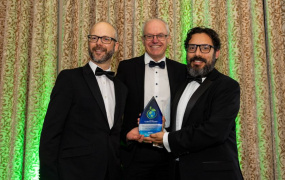Philosophy
About
Philosophy can be taken as part of the MIC Arts Degree as a joint honours combination.
You like to think and reflect on the world and what is going on around you. You have an interest in the why and how of things, people and institutions. You are interested in the questions that have intrigued mankind for generations and would welcome an opportunity to investigate them further. A philosophical education means studying some of the “big questions” that many people, including some of the greatest minds in human history, have grappled with.
- Can we prove that God does (or does not) exist?
- How should we understand responsibility, to ourselves and to others?
- What sorts of political institutions are best?
- Are morals truths absolute or relative to culture?
- Are we responsible for what we do, or are we just victims of our genes, environment and upbringing?
- Do we know what we think we know?
- Do we have an obligation to always obey the law?
- Do we have souls or are we just "physical stuff"?
- Do we have free will or are we determined?
- Can you really experience anything objectively?
Our undergraduate programme consists of a broad, flexible and accessible introduction to Philosophy. Our department provides a supportive and friendly environment for students, with a distinctive range of modules and extracurricular activities. Our programme is structured to provide students with the skills necessary to appreciate more fully the central concerns of human existence and to develop abilities in problem-solving, reflective communication, writing and critical thinking. Philosophy can be humanistic or technical, historical or contemporary, theoretical or practical. The Philosophy Department at Mary Immaculate College is committed to offering a programme that allows its undergraduates to engage with all of these facets of the subject.
We offer philosophy courses that address ethical issues, others that focus on the nature of science, technology, and culture, many that explore some of the most important philosophical works written across the history of Western Civilisation, and others that cover a range of themes such as politics and society, religion and knowledge, and the human mind and the nature of reality. Studying philosophy will teach you to think logically and critically about issues, to analyse and construct arguments and to be open to new ways of thinking. In addition, you will learn to write clearly and persuasively, absorb and sift through complex information and to distinguish between different views and come to a reasoned position. You will also learn to be self-motivated, creative and able to prioritise your work and working to deadlines – all talents sought after by employers.
You will acquire the following skills:
- Logical and analytical thinking and reasoning
- Problem-solving
- Written and oral communication - presentation of ideas and information
- Ability to interpret, condense and clarify information
- Ability to formulate your own position and defend it in debate
- Curiosity, creativity and lateral thinking
- An ability to interpret, classify and analyse a variety of different information
- A willingness to debate any point
- An aptitude for distinguishing good reasoning from attempts to manipulate opinions
Careers in law, education, human resources, advertising, marketing, the media, publishing, politics, health care, public policy, social services, communications, government and journalism are possible career options. High-profile philosophy graduates such as TS Eliot; Tony Blair; Bill Clinton; Woody Allen; the Cohen Brothers; creator of The Simpsons, Matt Groening; Ricky Gervais; Martin Luther King; Elmore Leonard; Wes Anderson; Will Self and Michael Ignatieff are all examples of how studying philosophy can broaden your employment horizons as well as your capacity to think.
- MA/PhD Research
- About







